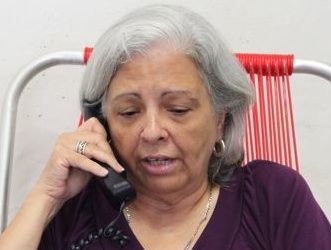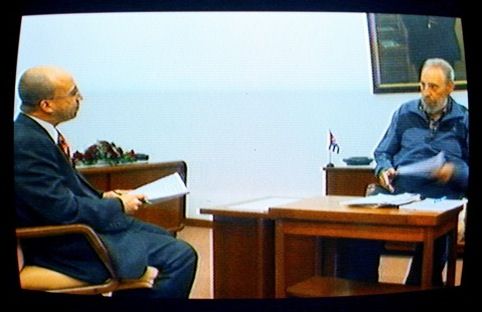Cuban dissident Martha Beatriz Roque isn't afraid of going to jail.
Police once took her into custody because she refused to let government workers fumigate her house. That was during a nationwide campaign to kill the mosquitoes that cause dengue fever. Roque said all she wanted to know was what chemicals workers were using. They wouldn't, or couldn't, tell her. Roque protested, so authorities took her into custody, repeatedly, while her house was fumigated over a period of many weeks.They also strip searched her, which she believes was an attempt to humiliate her.
More serious trouble came in March 2003 when authorities arrested Roque and 74 other dissidents, journalists and other activists during a government crackdown that became known as the Black Spring. As she sees it now, the 75 dissidents arrested in 2003 were "Fidel Castro's personal political prisoners." She believes Castro wanted to exchange the 75 activists for five Cuban agents held on espionage-related charges in the United States. So according to Roque, the former Cuban president purportedly ordered 75 people arrested, 15 for each of the five Cuban agents.
In the years following the crackdown, 23 of the 75 prisoners were freed. Many of them, including Roque, were released after they had health problems in prison. A prisoner exchange with the five agents never materialized. Then on July 7, the Roman Catholic Church made a stunning announcement: Cuban authorities planned to release the 52 remaining prisoners. Twelve prisoners and their families have since been flown to Spain. Eight more are scheduled to arrive by the end of the day.
As the first prisoners were freed, Fidel Castro, 83, began a string of public appearances. He showed up on a nightly news program known as the Round Table. He spoke to a gathering at Cuba's Foreign Ministry. He even stopped at the National Aquarium in Havana and watched through the glass as dolphins and their handlers gave an underwater performance.
All this shocked Cubans, who had seen Castro only in photos since he fell ill in July 2006.
Roque's theory is that Castro appeared on Cuban television "so people would know that he approved of the prisoner release." A senior Cuban official, who spoke on condition of anonymity, scoffed at that. Dissidents, he said, think everything revolves around what's most important to them: The prisoner release. They are like a bald man who is obsessed with his lack of hair, the official said. "The bald man thinks everyone is looking at his head. But they're not."
To be sure, government officials and dissidents have starkly different views of what's going on in Cuba, including the state of the economy, and the strength, or weakness, of the dissident movement.
Some Cuban officials don't read too much into Castro's appearances. They say he's always been interested in international affairs and right now he's deeply concerned there could be a nuclear war in the Middle East. And they say he's been making appearances to talk about that.
Roque and other dissidents are only trying to create false impressions about Cuba, the senior official said. "That doesn't worry us," he said. "We'll let them create their own lies." According to him, Cuba's future doesn't depend on the pro-democracy activists, "we're much more worried about what happens in Iran. Nuclear war could bring consequences for us all."
As for Cuba's domestic affairs, he said, "Our future will be determined by our ability to resolve our internal problems."



